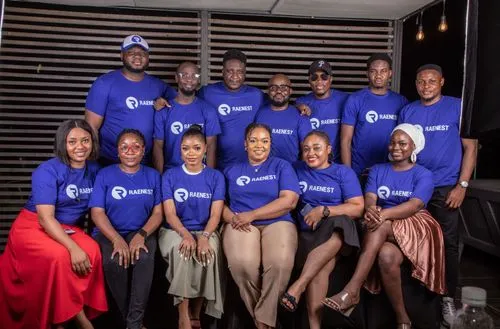Raenest, one of Nigeria’s fastest-growing fintech companies, has officially launched operations in the United States.
The company aims to strengthen cross-border remittance networks and offer new financial tools for freelancers and small businesses.
The U.S. entry represents their biggest international step since their founding in 2022 and comes just eight months after they raised $11 million in Series A funding, led by QED Investors.
The new funds are being used to open more global payment corridors and introduce products that help Africans manage, move, and grow their money across borders.
Raenest products for Africa’s global workforce
At the Raenest Exchange 2025 event in Lagos, CEO Victor Alade said the expansion reflects their mission to simplify global financial access.
“With this new launch, we have completed the ‘money loop,’” Alade said. “Raenest connects money movement, saving, and investing in one ecosystem, allowing users to earn, move, and invest seamlessly.”
The fintech unveiled a suite of new features, including stablecoin payments, stock trading, and Raenest Fasstrack, which integrates directly with freelance platforms like Upwork. The Fasstrack service now allows gig workers to receive payouts in under an hour, compared to several days previously.
They have also introduced a stablecoin conversion service that supports USDC and USDT, automatically converting crypto into U.S. dollars. This gives freelancers and remote workers faster, more reliable access to funds while bypassing currency volatility.
Another launch highlight was the platform’s stock investing feature, which lets users buy shares in global companies directly from their Naira or dollar accounts. This expands their reach from remittances into personal finance and wealth creation.
Building a fintech community across Africa
Raenest’s platform already serves over 700,000 users and has processed over $1 billion in payments. Its consumer app, Geegpay, helps freelancers and content creators receive international payments from platforms such as Fiverr, Gusto, and Upwork.
On the business side, they offer multi-currency banking solutions for African startups. Since launching its business banking product in 2024, the company has onboarded more than 300 firms—including Moniepoint, Fez Delivery, and Helium Health—and processed over $100 million in transactions.
According to Lexi Novitske, General Partner at Norrsken22, one of Raenest’s investors, the company’s model is tackling long-standing financial challenges in Africa’s gig economy.
“Africa’s freelance workforce is expanding by around 20% annually, but cross-border payment barriers remain. Raenest is unlocking new opportunities by connecting this workforce to the global economy,” she said.
Raenest Exchange 2025 drew over 1,500 participants, including freelancers, business owners, and influencers. Beyond showcasing new tools, the event created space for users to network and share feedback directly with the company’s leadership.
“We wanted to create a space where our customers could learn, connect, and grow together,” Alade said. “Raenest is not just a payments company; we see ourselves as partners in our users’ success. When they earn more, we grow too.”
He confirmed that the annual event will remain a key part of Raenest’s community engagement plan. It will help the company stay close to user needs while fostering trust and loyalty.
Aiming for super app status
They currently operate in Kenya, Ghana, Tanzania, and Uganda, with plans to expand to Egypt after the U.S. rollout. According to Alade, their broader vision is to evolve into a financial super app that connects Africa to the rest of the world.
“While many fintechs focus on Africans in the diaspora, Raenest was built to support Africans living in Africa by helping them receive and manage global payments,” Alade said. “Now, as we expand, we’re bringing that same mission to Africans abroad. Our goal is to simplify global fund management for everyone.”
With stablecoins, instant payouts, and stock trading now part of its ecosystem, Raenest is positioning itself as a cross-border payments solution and a bridge between Africa’s digital economy and global financial markets.
















